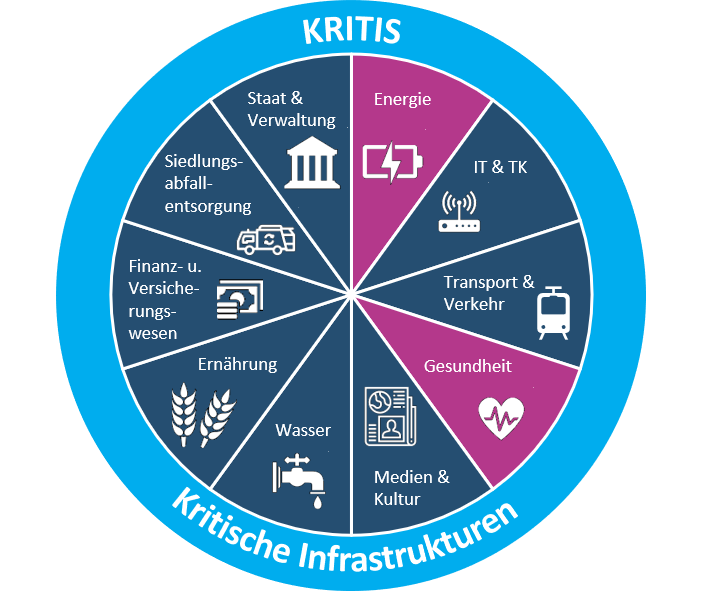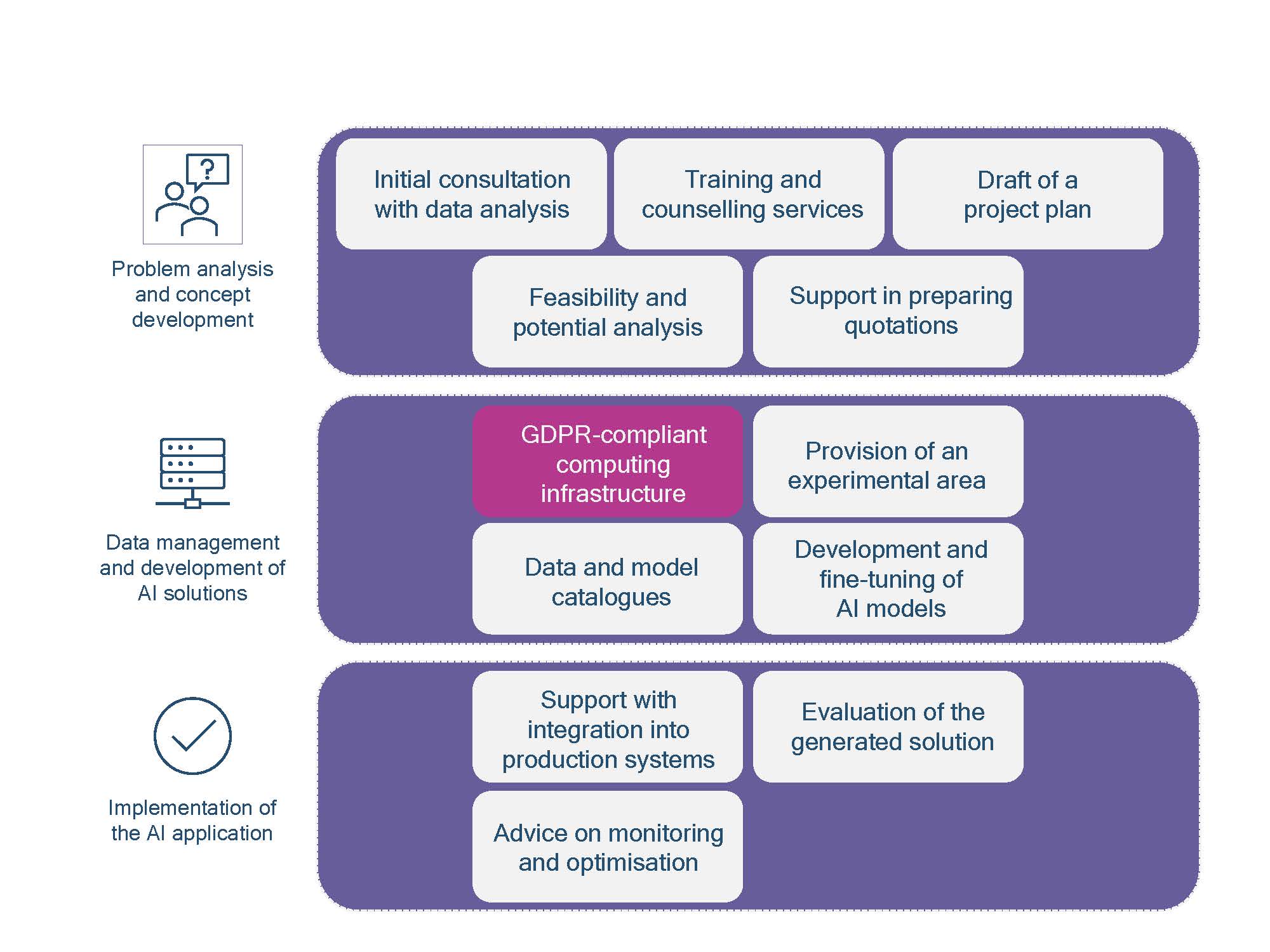Critical and sensitive infrastructures: energy and medicine
KISSKI offers companies and researchers from sensitive and critical infrastructures access to a powerful and highly secure AI computing infrastructure, AI-driven applications and models. Our AI service centre is specifically designed for players from the healthcare/medical and energy sectors as well as other industries with sensitive data and high security requirements.


From the idea to the AI application
Depending on requirements and experience, we initially offer either an individual initial consultation with subsequent expert advice and training or direct access to a service portal designed for AI services, on which the computing resources and AI models can be used directly. Similar to other AI services such as AWS.
KISSKI is operated and hosted in Germany and is specially designed for sensitive and critical infrastructures.

